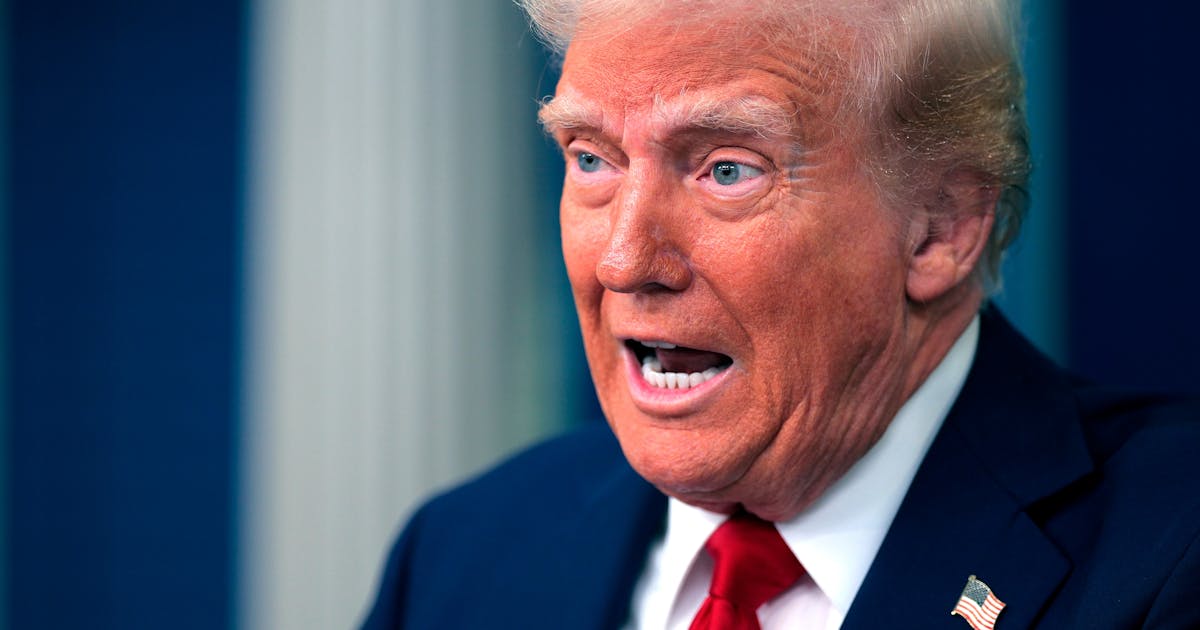- Joined
- Sep 6, 2019
- Messages
- 26,845
- Reaction score
- 29,298
- Gender
- Male
- Political Leaning
- Moderate
When the president claims everything is a national emergency, so that he can do whatever he wants, the courts need to regard that as the real emergency.
Illegal border crossings are an emergency. The Mexican cartels are an emergency. Failure to expedite mining and drilling on federal lands is an emergency. Illicit drugs coming in from Canada, China, and Mexico are an emergency (actually, three). The International Criminal Court is an emergency. The trade deficit is an emergency. Brazil’s prosecution of its former president, Jair Bolsonaro, is an emergency. Crime in Washington, D.C., is an emergency. Crime in Chicago and Baltimore may soon be emergencies too. “We’re going in,” President Donald Trump said Tuesday. “I didn’t say when.”
Trump has declared nine national emergencies under the 1976 National Emergencies Act, or NEA, during the seven months he’s been in office. That’s 1.3 emergencies per month. If we include crime in D.C., which Trump declared an emergency under a different law—the 1973 Home Rule Act—it’s an even 10. For now. “We may declare a national housing emergency in the fall,” Treasury Secretary Scott Bessent told the Washington Examiner on Monday. That’s 11. Add Chicago and Baltimore, and it’s 13, assuming Trump doesn’t dream up more emergencies to declare in the interim.
During his first term it took Trump four long years to declare 13 emergencies, and some of them were actually real (most notably, Covid-19). Once a president declares a national emergency he may help himself to 137 different statutory powers, according to the nonprofit Brennan Center for Justice, which lists them here. It’s obvious Trump covets these.
Trump’s excessive use of emergency powers is itself an emergency. The best solution would be a definition explaining what “emergency” means under the NEA; the statute doesn’t furnish one. Mark Medish, writing in The New Republic in 2022, noted that legislation to curb presidential emergency powers then enjoyed bipartisan support and that Trump’s first term had demonstrated why it was so urgently needed. Fix the roof, Medish warned, while the sun is still shining. But Congress did not act, and now it’s raining cats and dogs and we’ve got pots out everywhere to catch the leaks.

 newrepublic.com
newrepublic.com
Illegal border crossings are an emergency. The Mexican cartels are an emergency. Failure to expedite mining and drilling on federal lands is an emergency. Illicit drugs coming in from Canada, China, and Mexico are an emergency (actually, three). The International Criminal Court is an emergency. The trade deficit is an emergency. Brazil’s prosecution of its former president, Jair Bolsonaro, is an emergency. Crime in Washington, D.C., is an emergency. Crime in Chicago and Baltimore may soon be emergencies too. “We’re going in,” President Donald Trump said Tuesday. “I didn’t say when.”
Trump has declared nine national emergencies under the 1976 National Emergencies Act, or NEA, during the seven months he’s been in office. That’s 1.3 emergencies per month. If we include crime in D.C., which Trump declared an emergency under a different law—the 1973 Home Rule Act—it’s an even 10. For now. “We may declare a national housing emergency in the fall,” Treasury Secretary Scott Bessent told the Washington Examiner on Monday. That’s 11. Add Chicago and Baltimore, and it’s 13, assuming Trump doesn’t dream up more emergencies to declare in the interim.
During his first term it took Trump four long years to declare 13 emergencies, and some of them were actually real (most notably, Covid-19). Once a president declares a national emergency he may help himself to 137 different statutory powers, according to the nonprofit Brennan Center for Justice, which lists them here. It’s obvious Trump covets these.
Trump’s excessive use of emergency powers is itself an emergency. The best solution would be a definition explaining what “emergency” means under the NEA; the statute doesn’t furnish one. Mark Medish, writing in The New Republic in 2022, noted that legislation to curb presidential emergency powers then enjoyed bipartisan support and that Trump’s first term had demonstrated why it was so urgently needed. Fix the roof, Medish warned, while the sun is still shining. But Congress did not act, and now it’s raining cats and dogs and we’ve got pots out everywhere to catch the leaks.

Trump Is Our True National Emergency
When the president claims everything is a national emergency, so that he can do whatever he wants, the courts need to regard that as the real emergency.
